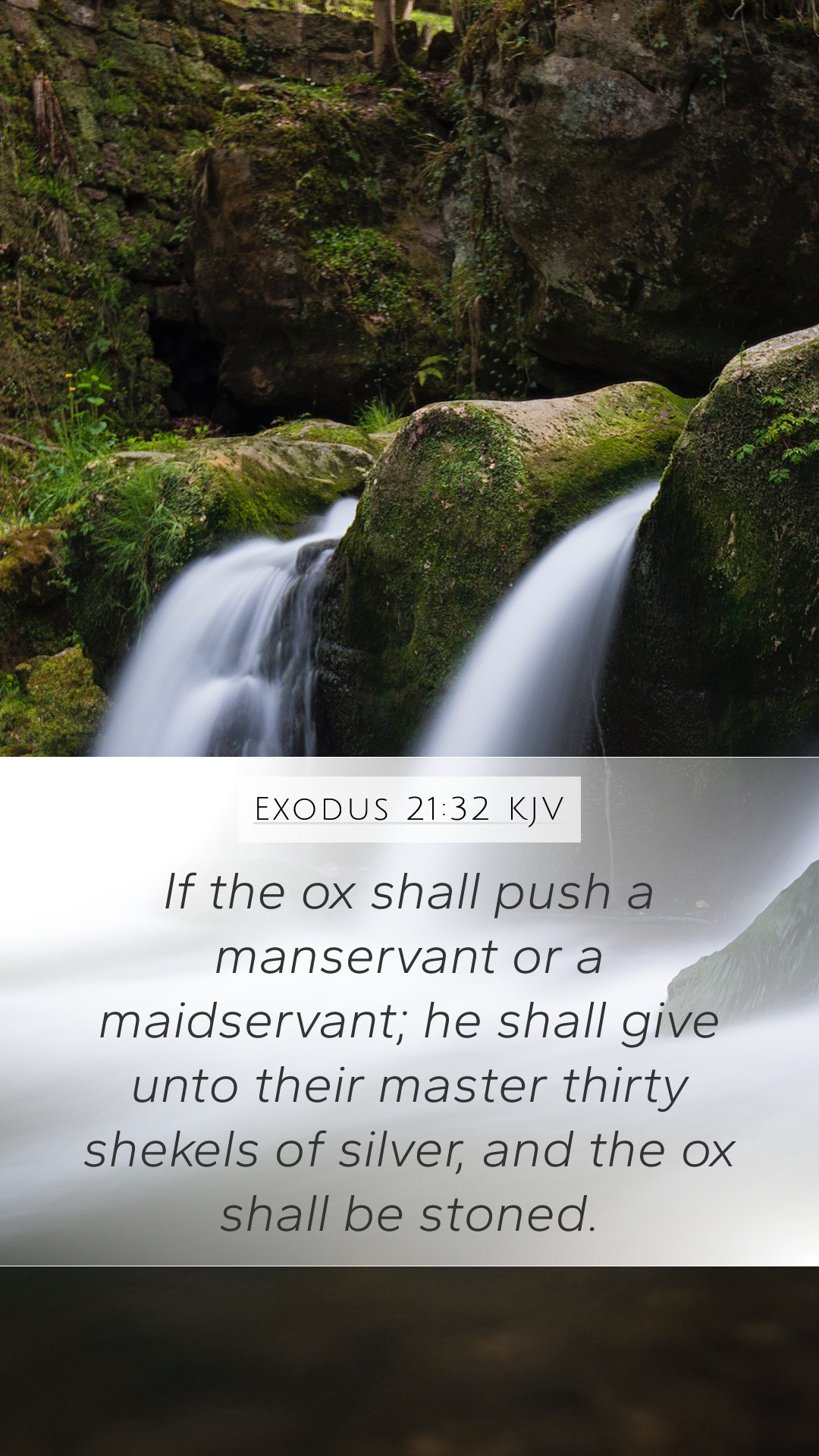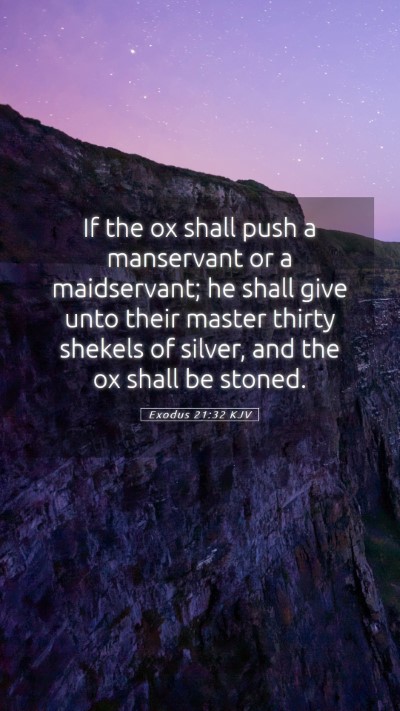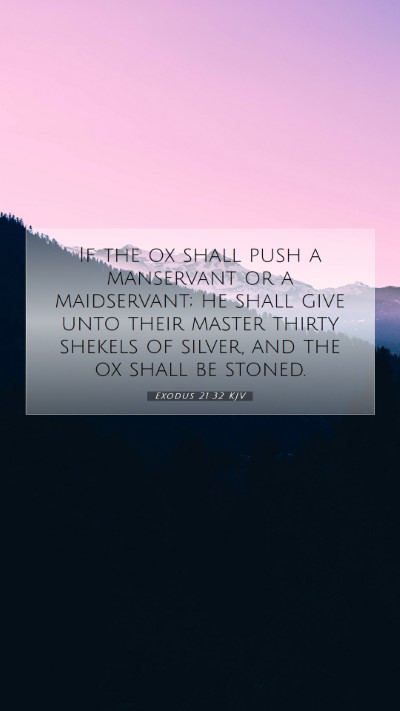Exodus 21:32 - Understanding the Biblical Context
Verse: Exodus 21:32 (KJV) - "If the ox shall push a manservant or a maidservant; he shall give unto their master thirty shekels of silver, and the ox shall be stoned."
Verse Meaning and Interpretation
This verse provides a legal stipulation regarding the responsibility of animal owners in ancient Israel. It addresses the consequences that arise when an ox injures a servant, underscoring principles of accountability and restitution.
Insights from Public Domain Commentaries
Matthew Henry's Commentary
Henry emphasizes the social justice embedded in this law. He notes that the servant's life holds value, and thus compensation is due to the master, reflecting both the severity of the incident and the protection of the vulnerable.
Albert Barnes' Notes
Barnes explains that the thirty shekels of silver is a significant amount, representing a serious injury to the servant and underlining the importance of personal responsibility in one's actions, including that of animals.
Adam Clarke's Commentary
Clarke points out that the penalty serves as both deterrent and restitution, contributing to societal order. He suggests that this law reflects God's concern for the well-being of all members of society, including the working class.
Historical Context
Understanding this verse necessitates a look at the social structure in Israelite society. Servants had specific rights, and their protection against harm was crucial in reflecting God's law on social justice.
Application of the Verse
The principles in Exodus 21:32 can be applied to contemporary issues of responsibility and restitution. In modern contexts, this verse prompts discussions about the ethical treatment of workers, the importance of accountability, and the need to protect those who are vulnerable or in authoritative dependence.
Related Bible Cross References
- Deuteronomy 19:21 - Equality in punishment.
- Exodus 21:36 - Liability for an animal that is known to be dangerous.
- Leviticus 24:18 - Regulations concerning injuries to others.
Conclusion
The study of Exodus 21:32 offers valuable insights into social ethics as presented in the Bible. Through various commentaries, one notices a consistent theme reflecting God's desire for justice, accountability, and care for the marginalized. Engaging with this scripture can deepen our understanding of not just the text itself, but also its implications for our daily lives and interactions within society.


